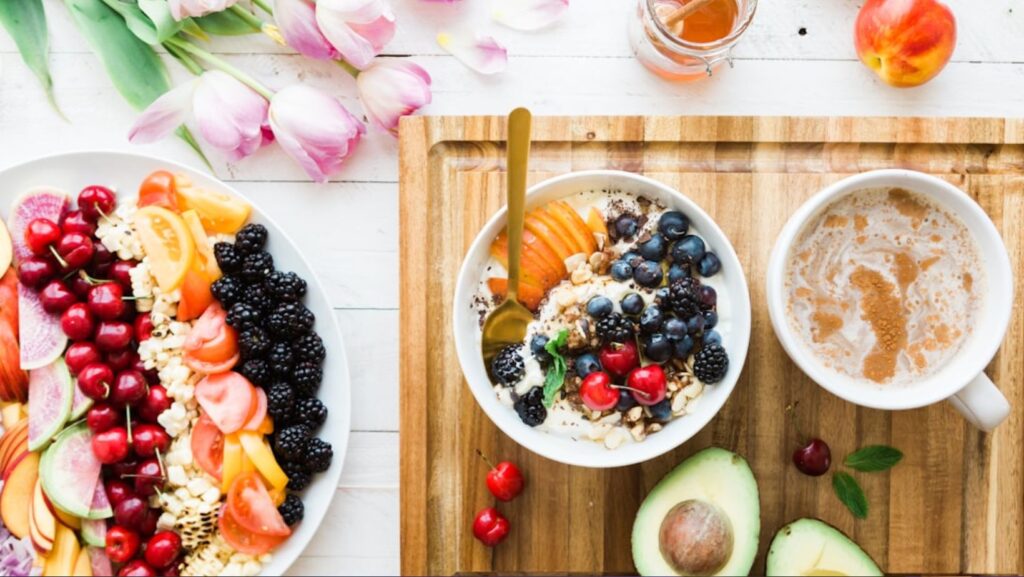Wellness and vitality are not just buzzwords; they represent a holistic approach to living beyond physical health. In today’s fast-paced world, full of stress and demands, wellness involves nurturing the mind, body, and spirit. It’s about finding balance to build resilience, promote longevity, and improve quality of life. Vitality is the energy that drives us to engage with our surroundings, pursue our passions, and embrace life’s opportunities. Here, we explore the central role of hydration and diet in achieving wellness and vitality.
The Importance of Hydration
Water makes up to 60% of our bodies and is essential for every function. It regulates temperature, removes waste, lubricates joints, and supports digestion, absorption, circulation, and nutrient transport. Without enough water or when we lose too much through sweat or illness, dehydration occurs, leading to fatigue, headaches, constipation, dry skin, and more; chronic dehydration can harm kidney function and raise the risk of chronic diseases like hypertension and diabetes.
Experts suggest drinking at least eight glasses of water daily to stay properly hydrated. However, needs can vary based on activity, climate, and health. Listen to your body; thirst is a sign to hydrate. Eating foods high in water content, like fruits and vegetables, helps meet hydration needs. A balance of water and fluids like herbal teas, low-sugar juices, and coconut water is also beneficial.
The Power of Diet for Wellness and Vitality
As the saying goes, “You are what you eat.” The foods we consume significantly impact our physical, mental, and emotional well-being. A healthy diet provides the necessary nutrients for maintaining optimal bodily functions while reducing the risk of illness and disease. Fruits, vegetables, whole grains, lean proteins, and healthy fats form the basis of a balanced diet. These foods are rich in vitamins, minerals, antioxidants, and other bioactive compounds that promote cell repair and renewal.
Focusing on nutrient-dense foods rather than calorie-dense ones can prevent overeating while providing the body with the necessary fuel for optimal functioning. Incorporating superfoods such as Uji Matcha Chanoka Okumidori can also boost overall health and vitality. This premium quality matcha contains antioxidants, vitamins, and minerals that support immunity, energy levels, and brain function. In our previous article, you can read more about Uji Matcha Chanoka Okumidori and its benefits for hydration, diet, and health. A healthy and balanced diet also includes staying mindful of portion sizes, limiting processed foods and added sugars, and incorporating regular physical activity into your routine.
Finding Balance for Optimal Wellness and Vitality
Achieving wellness and vitality requires a multifaceted approach that harmonizes various aspects of life. This balance encompasses physical health, mental well-being, emotional stability, and social connections. To foster this equilibrium, it’s essential to integrate several critical practices into your daily routine.
Physical Activity
Regular physical activity is crucial for maintaining overall health and enhancing vitality. Aim for a mix of cardiovascular exercises, strength training, and flexibility workouts, as these activities improve stamina, build muscle, and promote joint health.

Additionally, incorporating movement into your daily life—such as taking the stairs instead of the lift or going for short walks—can significantly contribute to your physical well-being. This is especially important for supporting healthy circulation and preventing venous issues, which can be addressed with help from a Denver Vein Specialist if needed.
Mindfulness and Stress Management
Mental wellness is another pillar of balance. Mindfulness techniques such as meditation, yoga, or deep-breathing exercises can help mitigate stress and promote emotional resilience. Setting aside time for relaxation and self-care allows you to recharge mentally and emotionally, creating a more peaceful and focused mindset. Tracking your thoughts and emotions through journaling can further enhance self-awareness, helping you understand your triggers and responses.
Nutrition and Meal Planning
In alignment with a balanced diet, thoughtful meal planning is vital to optimizing health and vitality. Preparing meals in advance can ensure they can access healthy options and minimize the temptation to indulge in junk food during hectic days. Staying informed about food sources and seasonal ingredients can also enrich your diet and enhance your meals’ labor—and thus enjoyment—o
Social Connections
Nurturing relationships is essential to emotional health. Building and maintaining strong social connections with family, friends, or community groups provides emotional support and can contribute to a longer, healthier life. EnGroupctivities or volunteer opportunities can cultivate a sense of belonging and purpose, vital for emotional well-being.
Sleep and Rest
Finally, do take into account the quality of sleep in achieving balance. Sleep is vital for physical recovery and mental clarity. Establishing a consistent sleep routine by aiming for 7-9 hours of rest each night, creating a calming bedtime environment, and avoiding screens before sleep can significantly improve the quality of your sleep and rejuvenate your body and mind. Additionally, incorporating natural aids such as chamomile or valerian root teas, lavender supplements, or plant-based CBD tinctures, may help promote deeper, more restful sleep.

Combine physical activity, mindfulness, nutrition, social connections, and adequate rest to create a harmonious balance for optimal wellness and vitality. Each aspect supports the others, forming a holistic foundation for a healthier, more fulfilling life. Listen to your body’s needs, make conscious choices about your diet, and prioritize self-care to achieve optimal wellness. This approach allows you to live fully and pursue your passions with energy and enthusiasm.
